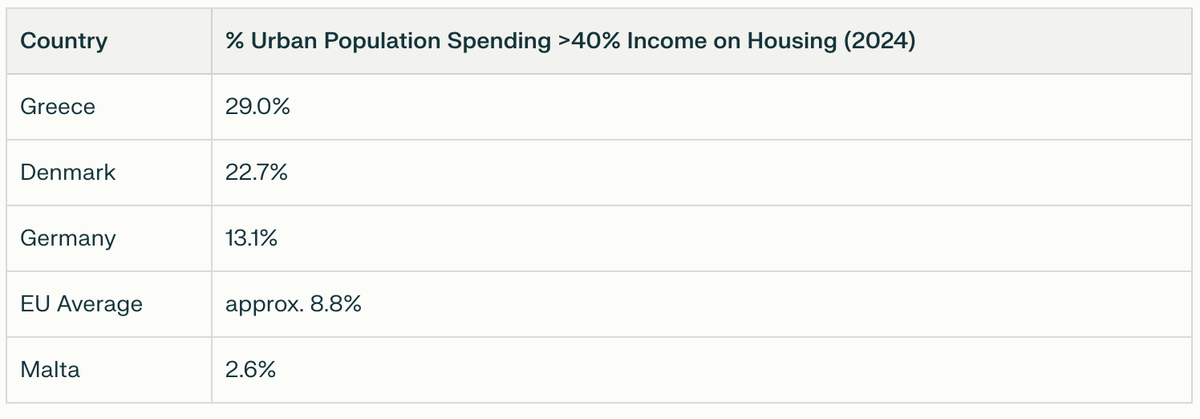Exploding Housing Costs Threaten Germany’s Attractiveness as a Talent and Investment Hub
Rising rents, chronic housing shortages, and policy uncertainty undermine Germany’s competitive edge—even as cities struggle to retain skilled workers and entice investors.

Germany’s attractiveness as a place to live and work is challenged by sharply rising housing costs, bureaucratic hurdles, and high energy prices, with 13.1% of urban residents spending over 40% of their income on housing in 2024—ranking Germany seventh in Europe and reflecting an upward trend.
Housing Cost Overburden: Germany in Context
Eurostat’s latest data confirms that housing cost burdens are climbing across European cities, exacerbating concerns in Germany where rent and purchase prices have outpaced wage growth. In comparison, Greece leads the continent, with 29% of city dwellers spending more than 40% of their income on housing, followed by Denmark at 22.7%. Malta remains the most affordable, with only 2.6% affected. Across the EU, the average is around 8.8%, making Germany’s 13.1% significantly above the median.

House Prices and Rents: Latest Trends
German property prices averaged €4,161 per square meter nationally in June 2025, with peaks around €8,476/sqm in Munich and affordable options below €2,000/sqm in eastern regions. Over the past year, house prices rose by roughly 1.4–3.7% depending on housing type, while rents increased by 3.2% EU-wide in early 2025. Despite recent moderation and price corrections since the 2022 peak, the long-term cost trajectory remains upward - putting further squeeze on household budgets.
Impact on Talent Attraction and Investment
High and rapidly rising housing costs directly threaten Germany’s ability to attract skilled workers and international investors. The housing overburden acts as a “location killer” in a competitive European landscape already suffering from talent shortages and stricter competition for foreign direct investment. Without affordable housing and faster construction planning, efforts merely focused on a welcoming culture are insufficient for lasting improvement in competitiveness and social cohesion.
Policy Urgency for Germany
- Germany’s ranking as seventh in Europe for housing cost overburden signals urgent need for policy action on construction, urban planning, and rent controls.
Moving abroad? Looking for international experience? Find the right place for your new life here!
Try it out: Tell us about your lifestyle, your values and what matters to you - we'll find the neighborhood where you truly belong. Worldwide.
- Bureaucracy and energy prices remain significant cost drivers, but housing now leads as a critical factor endangering Germany’s competitive position.
- Ramping up residential construction and slashing regulatory delays are crucial to preventing long-term skills and investment losses as living costs spiral.
Final Thought
Unless decisive steps are taken on housing affordability and supply, Germany risks shifting from the “land of opportunities” to the “land of high costs,” losing ground in the race for talent and capital in Europe.